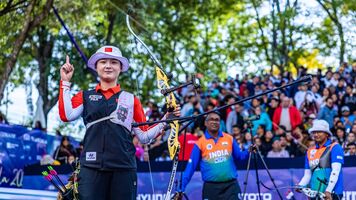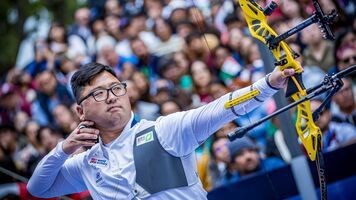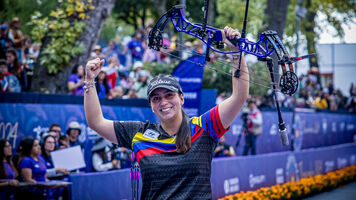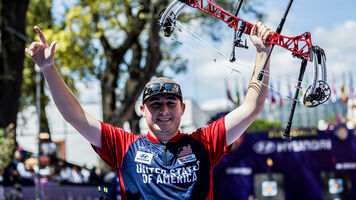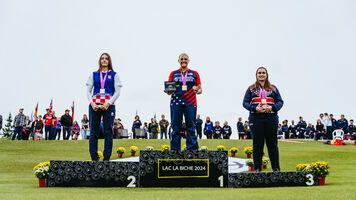A day in the life of an Olympic technical official
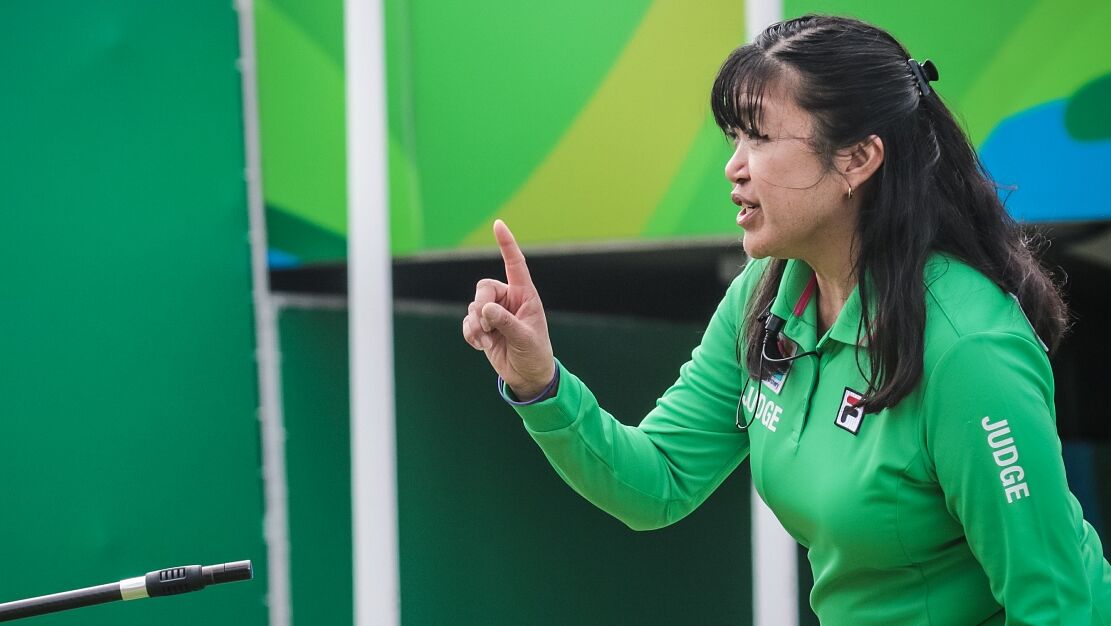
Responsible for applying the World Archery rules, fair play and conduct of competition on the field of play, judges – archery’s technical officials – are appointed to ensure the Olympic Games runs to the highest of standards.
From how they are chosen to what they do during the Games, here’s what archery’s judges are doing in Rio…
Chairman of judges
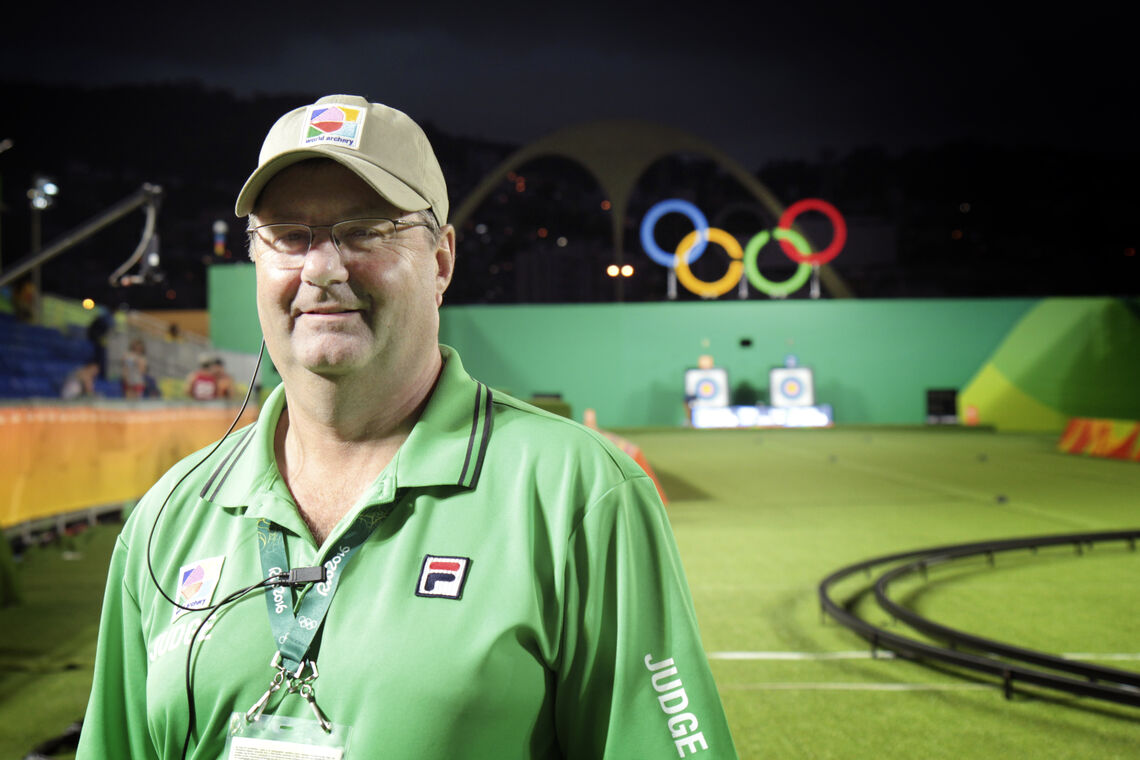
Graham Potts is the man in charge of the judging team, which is made up of 14 international officials and 10 national officials at the Olympics. He manages their schedule and roles, ensuring consistency in application of the rules and that everyone does their jobs properly.
“This is my first time as a Chairman of Judges for the Olympics, but not for World Archery. I was also a judge at London 2012, and I was fortunate to judge the individual men’s gold medal match,” said Graham.
“The most difficult part of this job is probably the man management of the 24 people within my team, but it’s easy when the match is going on and I’m watching, and I know that I have a lot of confidence in the judges out there doing the job.”
Judges at the Olympics, explained Graham, all have to have a minimum of five years experience as an international judge. They been to numerous world events and passed two accreditations, which are done every four years.
Gender balance and continental spread is also taken into account in judge selection.
Jury of appeal
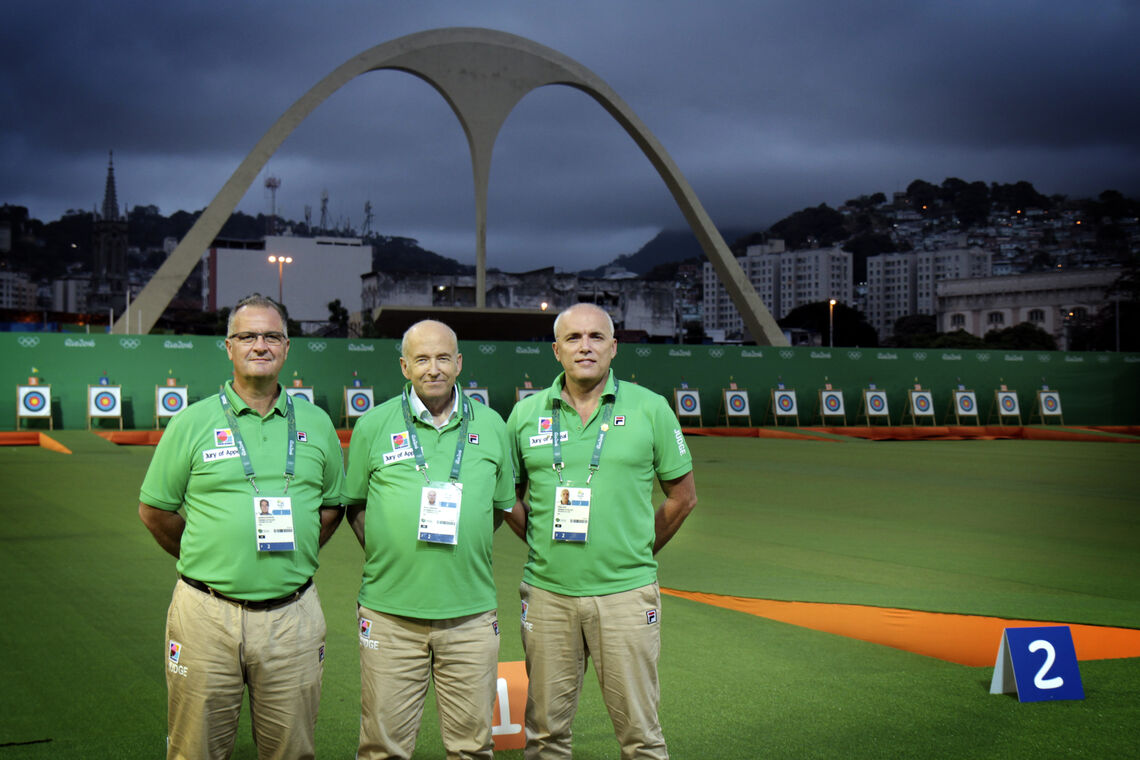
Three people appointed by the World Archery Executive Board, the jury of appeal don’t necessarily need to be judges, but they do need to know the rules and have long experience at international tournaments. They actually sit outside the main judging team.
“Our job is to decide if a mistake has been made by a judge, when that decision has been challenged by a team captain or team manager,” explained Sergio Font.
“The appeal might be related to the equipment, the DOS or the timing – or the procedure used by a judge – and we will decide on the basis of World Archery rules and also on a common sense of fairness.”
The three members of jury in Rio are the three members of the World Archery Judges Committee, which means that the three of them are judges with a lot of experience at international archery tournaments.
In case an appeal comes from or might affect the country from which the members of jury originate, the affected members withdraw and are replaced by an alternate who, in Rio, are from the USA and Chile.
“Since the level of judging at the Olympics is very good, we don’t get many appeals. So far, we haven’t had anything, but we need to be ready, watch the competition and be prepared for any situation. We can never leave the field until the competition is over,” said Sergio.
Line, target and scoring judges
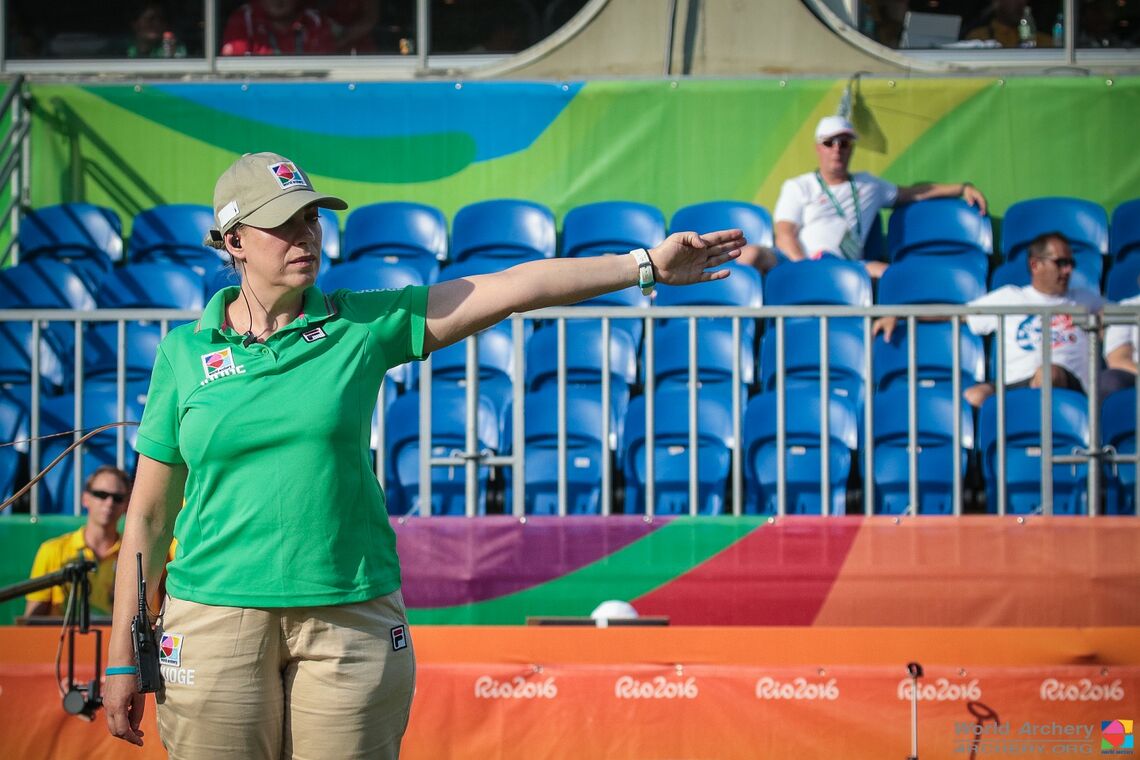
Katerina Plakouda, from Greece, is one of the judges in Rio. So far, she’s been assigned as a line and target judge, and officiated the men’s team gold medal match.
“The line judge leads the teams or athletes into the field of play, it’s his or her responsibility to know who shoots first and should always remember it, for both the shooting order or when there’s a tied score,” she explained.
The line judge also calls when an arrow has been shot out of time or out of sequence, and has the freedom to penalise teams with a yellow or red card if they don’t follow the rules or do something inappropriate during the match.
At the end of the match, the line judge also walks the athletes out of the field of play.
“The target judge is there to call the arrow values, if there’s a liner to give, an upper or lower arrow, and is also responsible to indicate if there’s a tie or a winner. The score judges check the results,” Katerina said.
A judge, added Katerina, has to be always up-to-date on the rules, focused and be impartial, accurate and reliable in scoring the athletes’ arrows.
Director of shooting
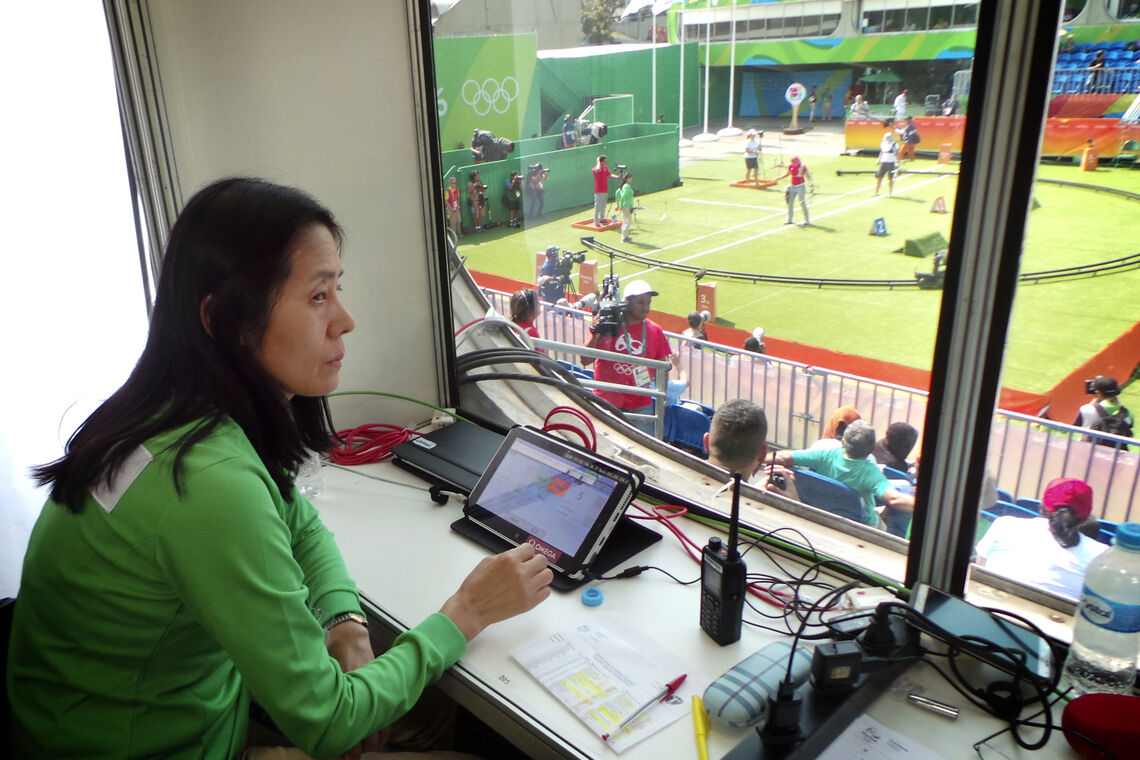
Xiuzhi Zhang is the director of shooting at the Olympics in Rio. She’s in the same room as the sports presentation team, as they need to be constant contact during matches to ensure that everything happens on time and in order.
“I press the button, which means I control the timing in each match,” said Xiuzhi, who was the competition manager at the Games in Beijing and also worked at London 2012.
“You need a lot of concentration because there are many matches to care about. I think the timing equipment makes it a little easier as it has improved a lot in comparison to the ones we had in other Olympics. Actually, here in Rio I’m operating it with an iPad.”






